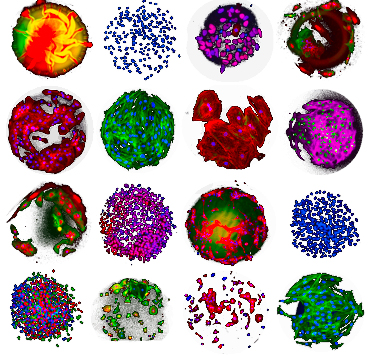Materials for Healthcare
Discover, design and develop novel materials and devices
Our primary research areas are:
- Development of high throughput methods for materials discovery
- Defining how chemistry, stiffness, topography and shape can control the response of cells to materials
Materials have become an integral part of modern medicine, used to target the delivery of drugs, expand and deliver cells in regenerative medicine to construct a wide variety of medical devices.

C
ells and polymer microarray by Asha Patel
As a result of huge advances over the last decade the stage is now set for developing the next generation of biomaterials for healthcare.
Advanced materials are developed in the division to meet current medical challenges; infection and antimicrobial resistance, and cancer. We also seek to provide materials solutions to allow the opportunities offered by regenerative medicine and cellular therapies to be realised. We use a range of approaches to discover and develop materials including high throughput approaches, whereby we are able to screen hundreds to thousands of materials in parallel. We also use a range of modification techniques to functionalise surfaces and supramolecular self-assembly to design new materials that are biologically active.
Related publications